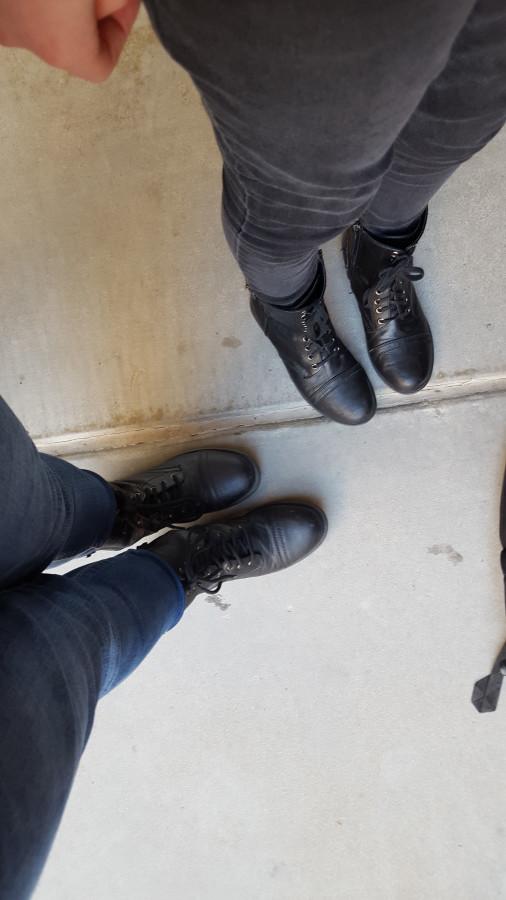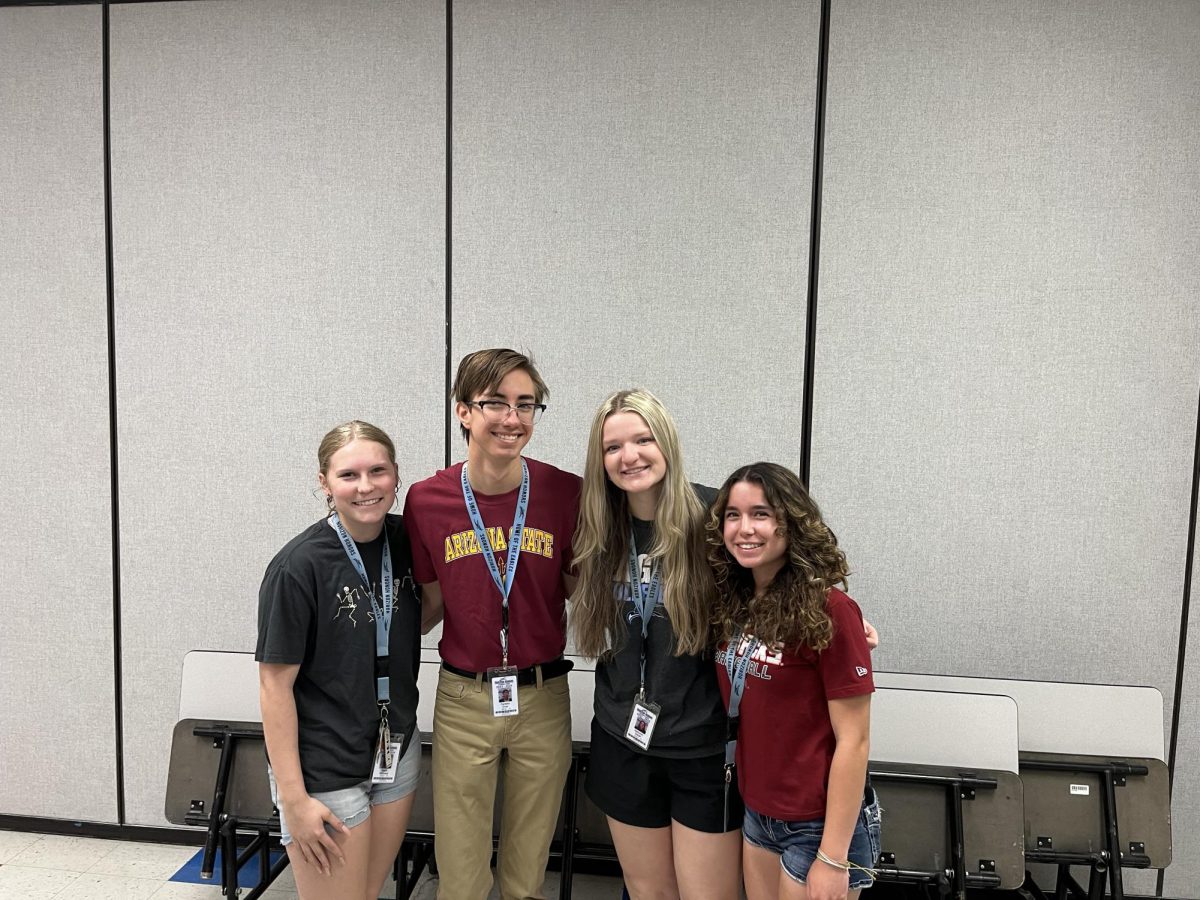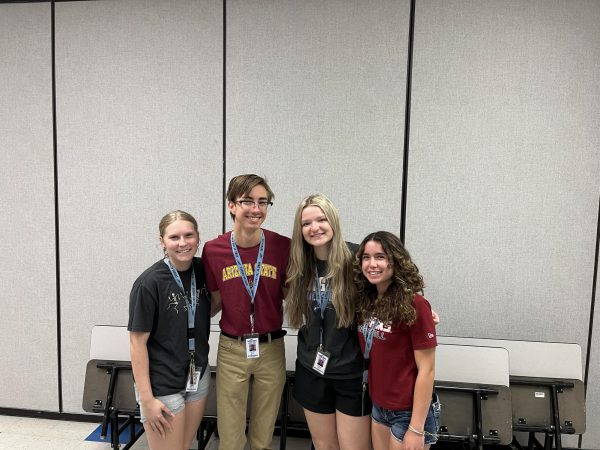Punk Rock: Maybe Not That Scary
Among parents and society, punk rock and “emo” bands tend to have a bad reputation. Although there’s lots of yelling in this music, it’s not just yelling.
At any punk rock concert, you’re bound to find lots of people with combat boots. Yet, just because fans don dark colors, doesn’t mean the music is just as dreary.
September 26, 2015
Welcome to punk rock. Music in this genre tends to contain yelling and loud music and a heavy reliance on bass guitars and guitars in general along with a lead singer who has a husky voice and dramatic photoshoot poses.
The most important part of being punk rock is the music. So, let’s get into that.
If you like to say you’re emo or punk rock, it doesn’t matter what you listen to. Your jam can be Ariana Grande or Ellie Goulding or 5 Seconds of Summer. Or, instead, maybe you like bands that are commonly associated with the title of “emo,” like Sleeping With Sirens, Bring Me the Horizon, or My Chemical Romance. Maybe you like Fall Out Boy, or that one band that nobody’s probably even heard of. It doesn’t matter.
The thing is, though, that a lot of the bands that these kids listen to are important despite how they are commonly thought of. One of my favorite songs, “Famous Last Words,” by My Chemical Romance has a chorus that resonates deeply within myself and others, and it consists of four sentences – “I am not afraid to keep on living / I am not afraid to walk this world alone / Honey if you stay, I’ll be forgiven / Nothing you can say can stop me going home.” Another common band here in the realm of punk rock and emo is Twenty One Pilots. Their songs include lines like “Stay alive / Stay alive / For me” and “I know you want to leave but / Friend, please don’t take your life away from me / Would you let me know your plans tonight / ‘Cause I just won’t go ‘til we both see the light.” The music is shockingly powerful.
Yes, there’s yelling, there’s screamo, there’s occasionally sexual songs (Panic! At The Disco tends to reign in the music of a sexual factor), you can even find music about things that really shouldn’t be advertised. But, included in this mess of music are songs about fighting depression. Songs about learning to love yourself, even though it feels impossible. It’s music devoted to showing people that they are not alone in whatever personal suffering anyone is going through.
Also, the bands who play this music are amazing. My personal favorite example is Gerard Way, lead singer of My Chemical Romance. He came from Summit, New Jersey, and made a band with his brother, Mikey Way, his friend, Frank Iero, and Ray Toro. A few others come and go throughout the band’s existence, but these were the people who were there when My Chemical Romance broke up in 2013. Anyways, when the band was first started, Gerard Way was addicted to Xanax and alcohol. One of the band’s first prominent performances, Way performed both high and drunk. And, after he almost died, he knew that he needed to change. With the help of his fans, Way recovered. Now? Way is married to Lyn-Z Way, has a daughter named Bandit and a dog named Susan, and makes comics, a lifelong dream of his. He currently has written three comics, and is working on a fourth – two are a part of his series “The Umbrella Academy” (illustrations by Gabriel Bá) and “The True Lives of the Fabulous Killjoys” (also written by Shaun Simon and illustrated by Becky Cloonan).
No matter who listens to this music, they know that the people who wrote it mean every word that they sing or shout or scream. When Patrick Stump, lead singer of Fall Out Boy, sings his songs, he means every word he utters. When Ronnie Radke of Falling in Reverse is screaming into the mic, he means what he’s saying. Whatever your history, whatever you think you can be and what you actually can be, no matter who you are, the music that goes under “punk rock” and “emo” is important. It’s the music that saves lives, the music that kids listen to when they’re hurting, it’s the music that, when it plays, we have to listen to the lyrics. It’s the music we dance to or cry to.
Like Twenty One Pilots’ “Fairly Local” states, “we are the few, the proud, and the emotional.” But the kids who listen know that they’re not alone. These “emo” kids, these punk rock kids, they have people who, although they don’t know them personally, would fight for and with them. That’s the magic.














